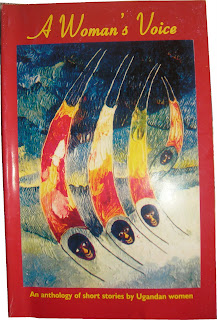This year, nothing has excited me more than being mentored by this literary legend during her recent visit to Uganda, where she participated in the campaign against domestic violence, writes Dennis D. Muhumuza
The acclaimed British author spent three weeks in Uganda and eluded her fans and book club members without even trying! Jane Rogers is the author of eight novels on top of short stories and several radio and TV plays that have aired on BBC and other international channels.
Her literary proficiency has won her notable accolades like the Somerset Maugham Award, Writers’ Guild Best Fiction Book while Dawn and the Candidate (1989) won her the Samuel Beckett Television Award.
Roger’s 1999 novel, Island, about a young woman hunting down her mother to kill her, was turned into a radio drama and has recently been turned into a film.
An editor of the Oxford University Press Good Fiction Guide (2001), Rogers has a novel set in Nigeria as well, The Voyage Home (2004). No wonder Chinua Achebe is one of her favourite authors.
An editor of the Oxford University Press Good Fiction Guide (2001), Rogers has a novel set in Nigeria as well, The Voyage Home (2004). No wonder Chinua Achebe is one of her favourite authors.
Anyway, the 58-year-old mentored me on an upcoming radio soap opera about bride price and domestic violence and when I boasted to my friend Lauryn Ntare, UBC’s hotshot Vogue Magazine host, she whooped with envy and begged me to get her an autographed copy of Roger’s best-selling novel, Mr Wroe’s Virgins (1991).
It’s a true story of ‘a charismatic church leader who tells everybody to join his church, citing the world’s imminent doom”. Mr John Wroe touts himself as God’s mouthpiece and gets his massive followers to give unrestrained money with which he builds a mega church and then demands seven virgins to work as his servants. But when one of them gets pregnant, his followers are riled and banish the hypocritical preacher, who runs to Australia and builds another church that still exists.
The novel was turned into a TV serial directed by Danny Boyle –the famed director of the popular movie, Slumdog Millionaire (2008).
Most authors, like parents, are often ambivalent about their favourite child or novel. But not Jane Rogers! Her favourite “baby” is her third novel, The Ice is Singing (1987), about a poor woman who abandons her twins. “I like it because it’s quite sad but ends happily,” she says, adding, “And it’s very well shaped.”
Roger’s journey into authorship began with a love of reading that knew no bounds from as early as she could remember.
“When I was little, we lived in the countryside, where a library van full of books would come around every once in two weeks; we were allowed to take six books,” she says, brightening up. “I used to choose the six fattest books in the van because then there was more reading in them. I would then read them in about two days and wait for the van to come back.”
“When I was little, we lived in the countryside, where a library van full of books would come around every once in two weeks; we were allowed to take six books,” she says, brightening up. “I used to choose the six fattest books in the van because then there was more reading in them. I would then read them in about two days and wait for the van to come back.”
It’s while waiting that Rogers would find herself writing vigorously in her journal, inspired by the stories she read. It grew into a habit she found hard to break.
“And when I was at the university (Cambridge), we formed a group in which we performed our own writing; reading to an audience. It became quite popular, so I had things published in small magazines and then I wrote my first novel, (Separate Tracks, 1983).
A professor of writing at Sheffield Hallam University, she says the art of writing is not easy but quickly tells budding writers it’s a worthwhile venture if they give it their all.
A professor of writing at Sheffield Hallam University, she says the art of writing is not easy but quickly tells budding writers it’s a worthwhile venture if they give it their all.
“Each of my novels has taken between four and five years to write, a lot of that time being spent re-writing it; changing it and revising it,” she says. “People say writing novels is 10 per cent inspiration and 90 per cent perspiration and I think that’s true - you have to work hard; you have to revise, revise, revise and the rewards will be greater.”
Interestingly, Rogers has not been as much inspired by literary sages of old as she has been fascinated by the works of 2007 Nobel Laureate, Doris Lessing, particularly her first book, The Grass is Singing (1950), about a relationship between a white woman and her black houseboy, set in pre-independent Rhodesia.
A first time visitor, Rogers talks fondly of the “incredibly friendly” people of Uganda, her Tororo Rock climbing experience and how the women of Kirewa County in Tororo gave her a new name, Nyakecho, which is Japadhola for “born in the season of harvest.”
Married with three children, Rogers, who lives in the north of England, promises to return to the “Pearl of Africa.” Hopefully next time round, fans like Lauryn Ntare will get that much needed autograph!
--Sunday Monitor, December 5, 2010
--Sunday Monitor, December 5, 2010






















